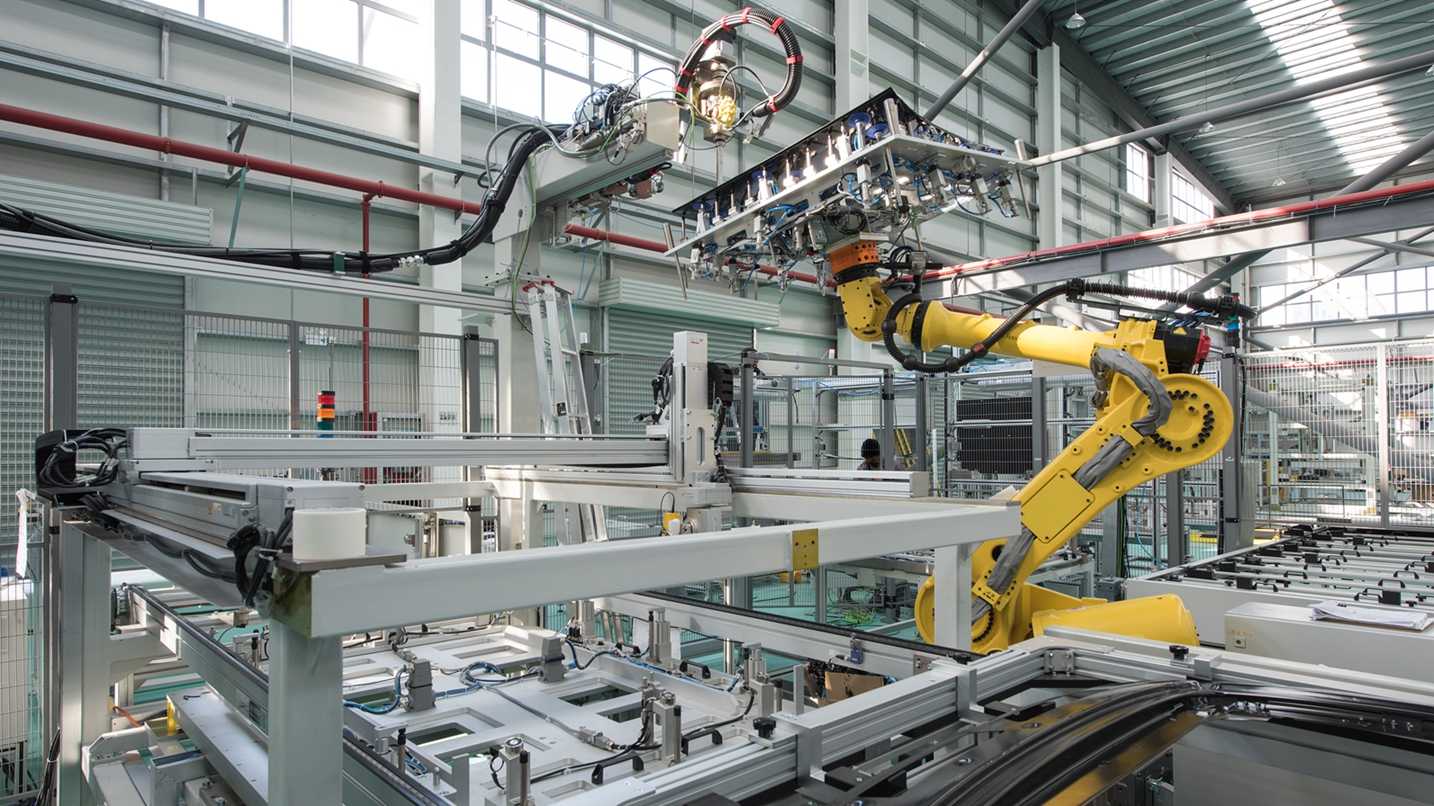
Markets
20:42, 23-Feb-2019
China's central bank advocates stronger financial support for robot manufacturing
CGTN

The People's Bank of China has encouraged domestic financial institutions to beef up their support for industrial robot manufacturing by providing innovative financing, lease and pledge services.
Efforts should be made to target corporate needs, facilitate research and development of core technologies and boost industrial chain reconstruction and its application in broader areas in the regional industrial agglomeration, said the central bank when giving an industrial analysis in a report on monetary policy implementation in the fourth quarter of 2018.
The report called for unswerving efforts to enhance intellectual property protection, create a fair and just market environment, boost international exchanges and cooperation and facilitate the fast but sound development of China's industrial robot sector.
Regarding industrial robots as "key equipment" to prop up intelligent manufacturing and elevate production efficiency, the central bank said that a broader range of industrial robot applications would alleviate the pressure from rising labor costs and comply with the need of flexible, intelligent and lean production.
Industrial robots can also be used to improve production safety in high-risk, toxic working environments, it said.
Since 2013, China has become the world's largest market for industrial robot applications. According to the National Bureau of Statistics, China's industrial robot output reached 147,700 in 2018, much higher than 131,100 in 2017.
The robot density of China's manufacturing industry stood at 97 industrial robots per 10,000 employees in 2017, up 29 from 2016 and exceeding the world's average of 85 for the first time.
Currently, industrial robots in China have been mainly used in goods handling, welding, assembly and disassembly.
The report noted that China's core technological innovation competence in industrial robot manufacturing still needs to be strengthened.
The lack of robot manufacturing specialists also constrained the sector's development while relevant standard certification systems need to be further optimized, it said.
Source(s): Xinhua News Agency

SITEMAP
Copyright © 2018 CGTN. Beijing ICP prepared NO.16065310-3
Copyright © 2018 CGTN. Beijing ICP prepared NO.16065310-3